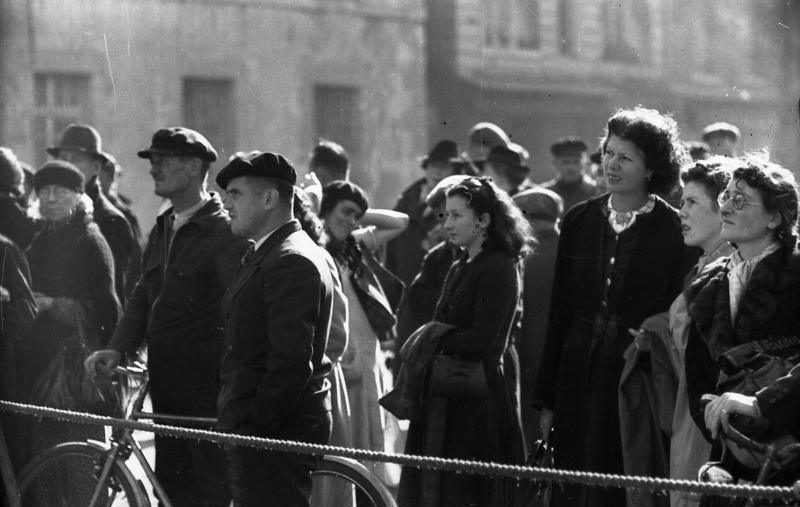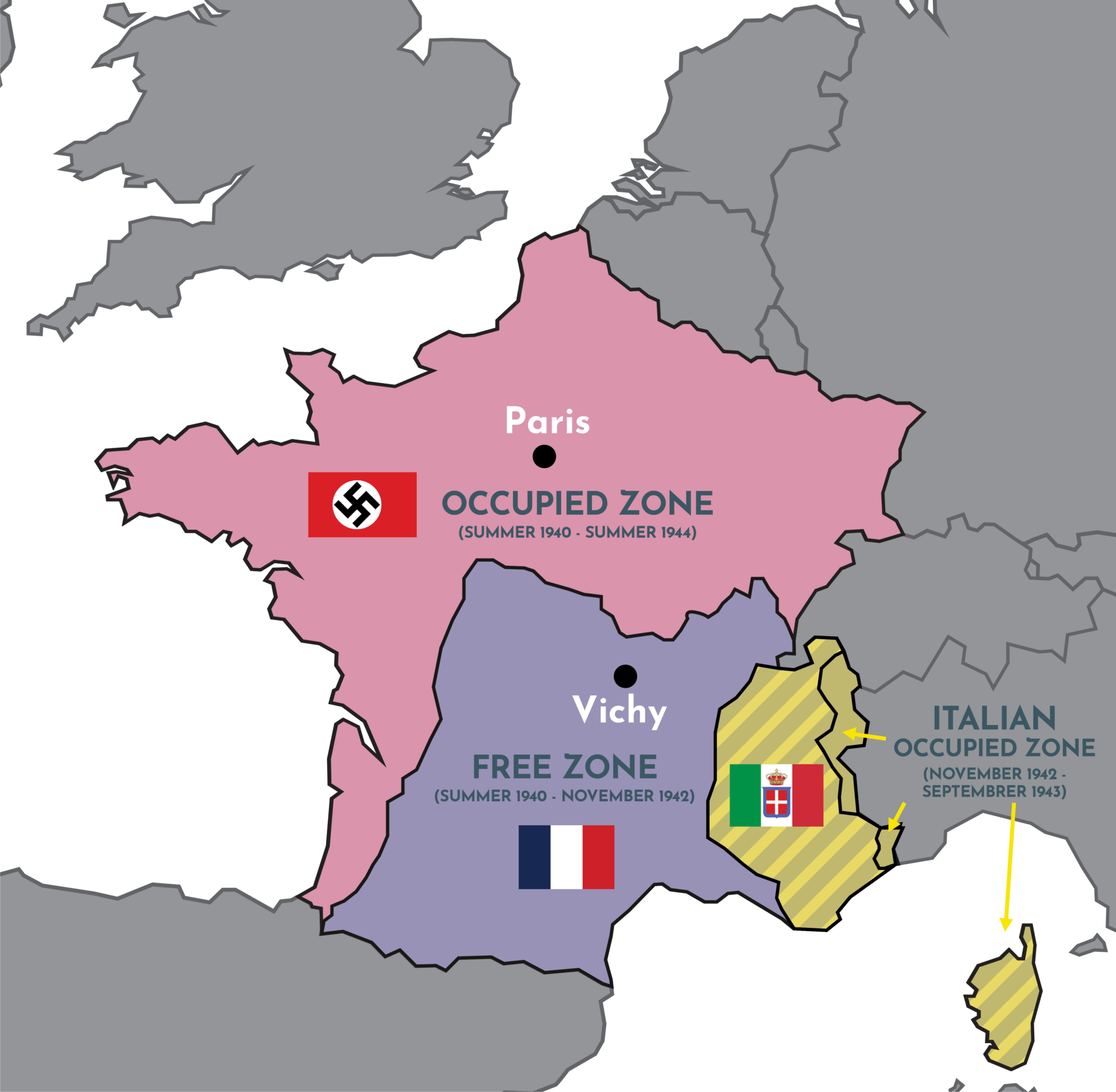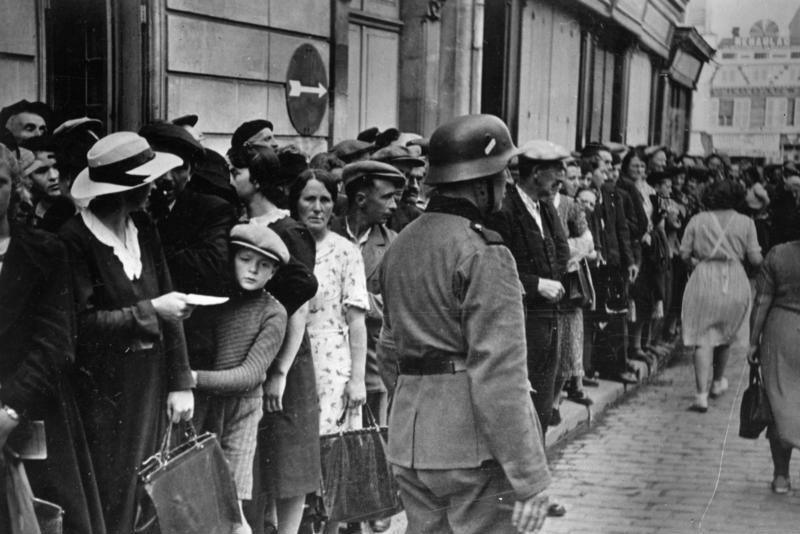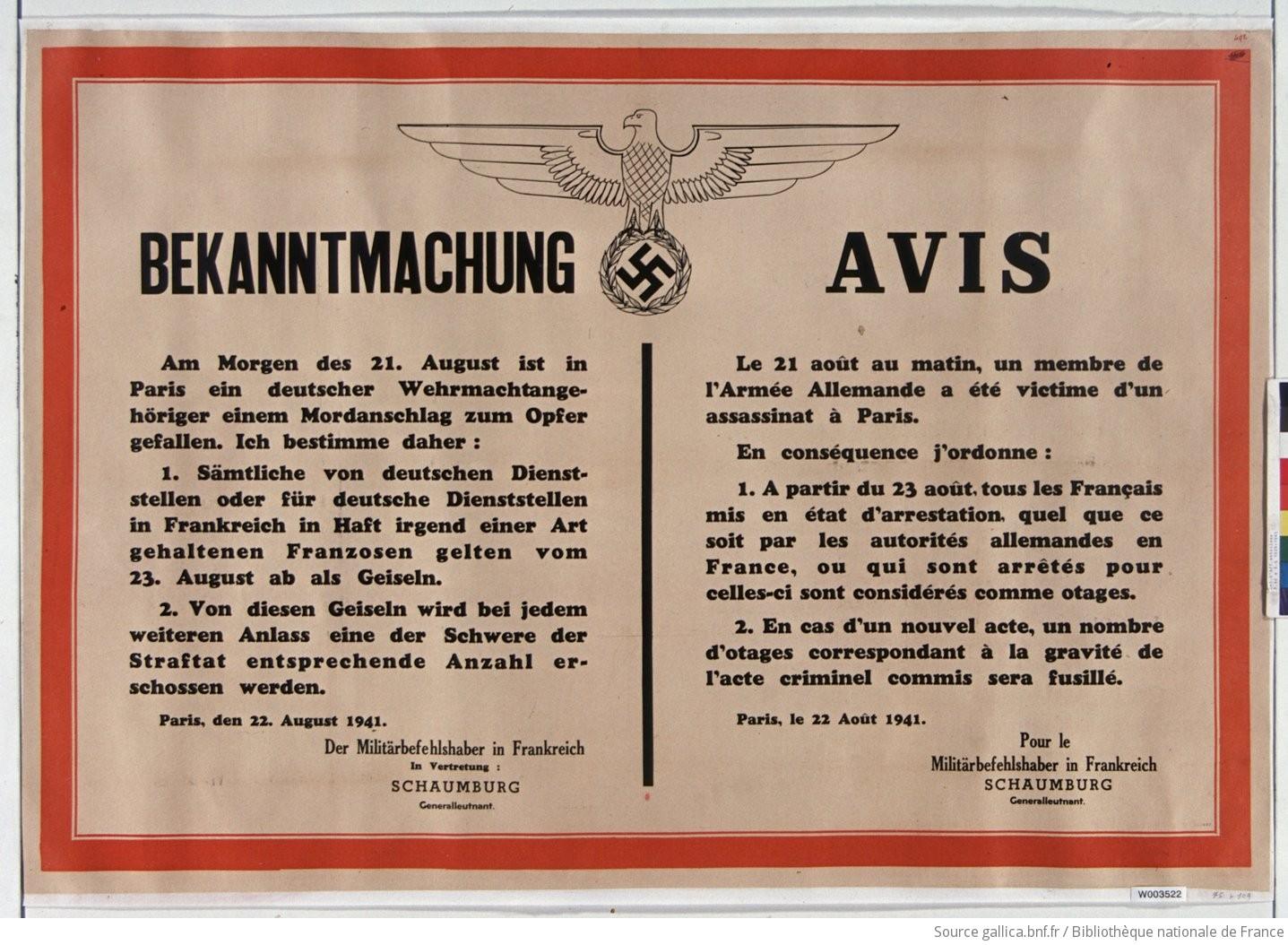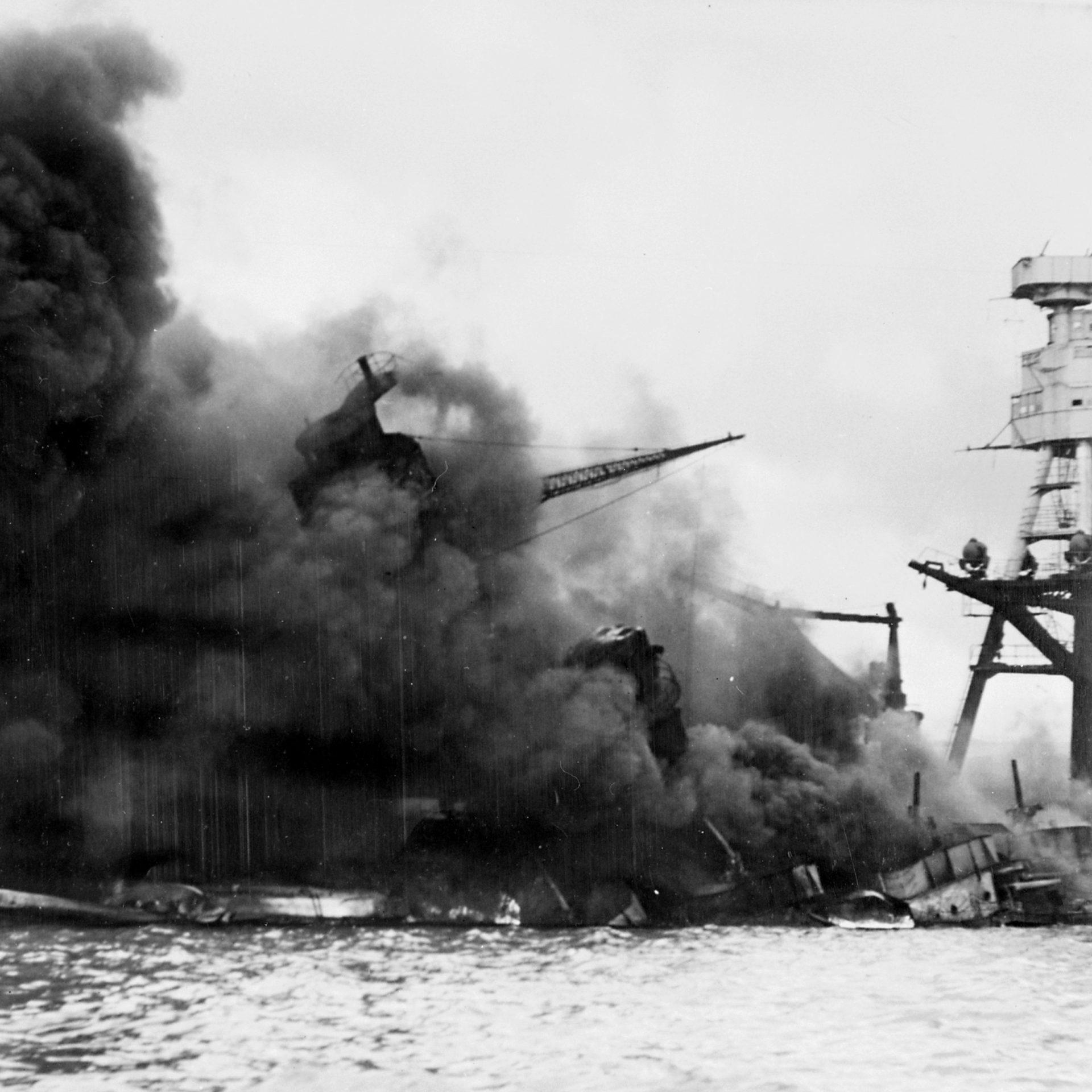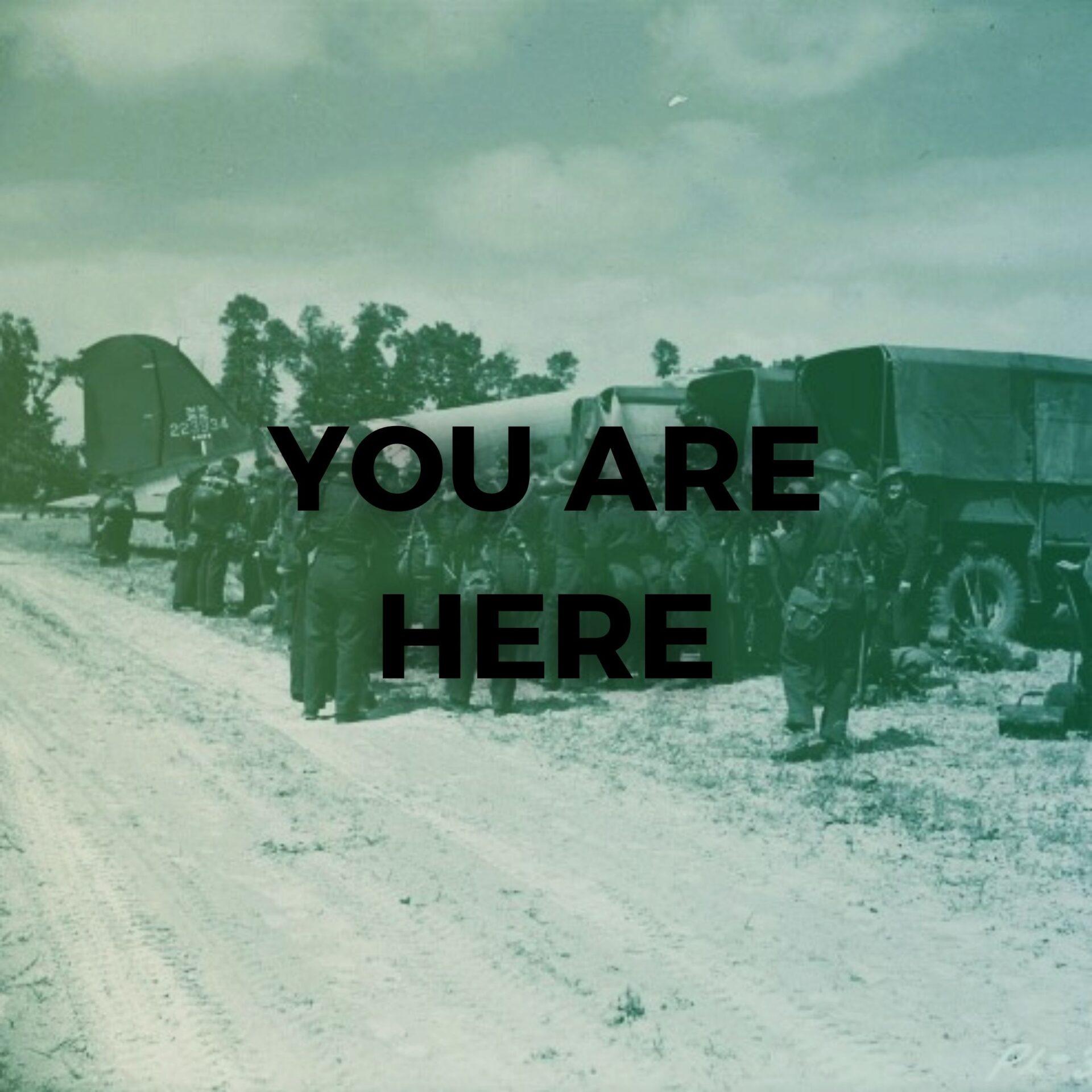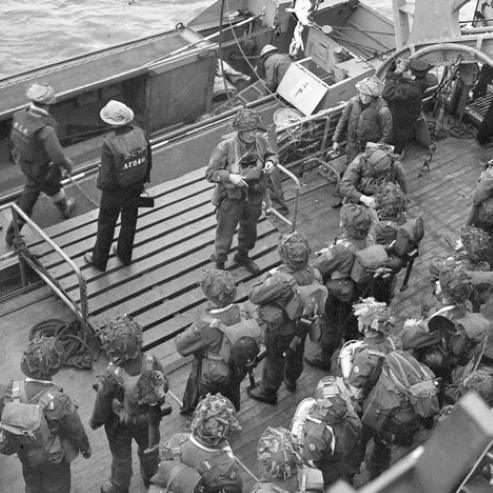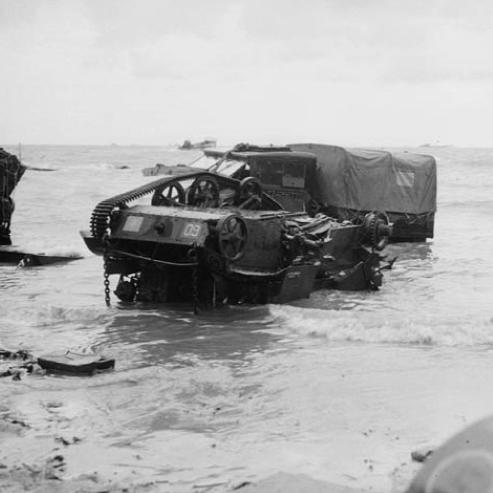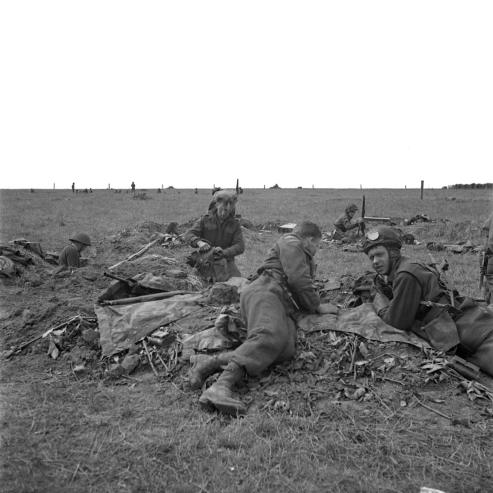THE INVASION OF FRANCE
THE NAZI OCCUPATION
On May 10, 1940, Nazi Germany invaded Belgium, Luxembourg and the Netherlands before pushing into France. The blistering German offensive completely routed the French army. France was then divided into two zones: the occupied zone governed by the Wehrmacht and the free zone governed by the Vichy regime. The Allies, who were preparing for the Normandy landings in France in the summer of 1944, were up against a country entirely occupied by the German forces.
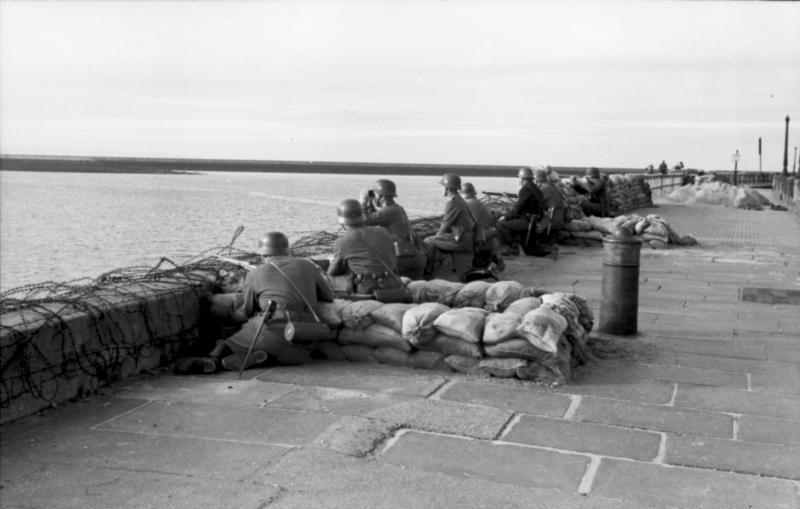
FRENCH LIFE UNDER THE OCCUPATION
In the occupied zone, the Wehrmacht unleashed a regime of terror against French civilians, who had to cope with food rationing, forced labour, and exposure to Nazi propaganda. Movement and contact between the different occupation zones were also monitored. Many French sympathizers collaborated with the Wehrmacht. For example, a number of French politicians organized fascist militias to directly help the Nazis repress and carry out genocide against the Jews. In the free zone, the Vichy regime adopted totalitarian and anti-Semitic policies that led to the deportation of numerous Jews to Nazi death camps. In total, over 76,000 Jews were deported from France, many to Auschwitz.
Elie Dawang
Avec autorisation du Musée de l’Holocauste Montréal.
Marguerite Élias Quddus
Avec autorisation du Musée de l’Holocauste Montréal.
On the other hand, French resistance to the occupying forces was also very strong, and by June 1944, more than 100, 000 people had joined the maquisards, who hid in the woods and mountains and launched sabotage and assassination operations against the occupiers. The consequences for these actions could be very severe, and the Wehrmacht committed many war crimes to eradicate the Resistance.

